Why much criticism of the Fair Trade movement is invalid – designed to disguise corporate exploitation of small farmers
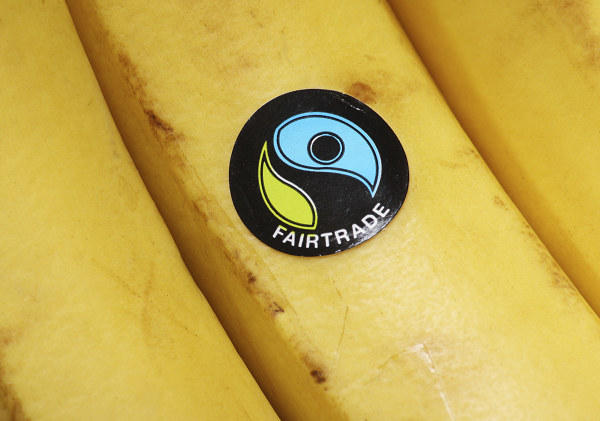
The Fair Trade movement was set up to secure better prices for struggling small farmers and craft producers in poor countries, and to provide funds for various improvements in their communities. It has, however, come in for some criticism for various reasons. Some criticism is based on the practical application of the Fair Trade model – see here. Many of these points are valid, and will require regulation, changes to some practices and purges of corrupt individuals.
A common claim is that not enough money makes it to producers, but even if increases in farmers’ income are relatively small in real terms, this can still represent a significant percentage increase that can help them hold on to their land, and more importantly, it guarantees prices over a longer period, allowing them to make realistic plans that otherwise wouldn’t be possible.
Dishonest criticism
But there is a second type of criticism that is disingenuous and pernicious, and requires an explanation. These criticisms come from pro-corporate, libertarian ‘think-tanks’, and they claim that instead of paying small farmers a little bit more, it’s best to help them ‘modernise’ (which means chemical fertilisers, pesticides and machinery). This is exactly what happened during the ‘Green Revolution’ in the 1960s, which offered technological solutions to non-existent ‘food shortages’ that were aimed at increasing profits for Western corporations producing the technological inputs such as high-yielding plant varieties, agricultural machinery, pesticides and chemical fertilisers. When you recognise that as the main aim, you can see that it was very successful.
However, it resulted in millions of small farmers losing their land, because a technological solution that benefited the West was offered instead of land reform, which would have benefited poor farmers and resulted in higher yields without the ecological damage and the increase in farm size associated with the application of technology (see ‘food production’, below). Smaller farmers couldn’t afford the machinery, pesticides etc, and couldn’t compete with larger farmers, who eventually bought them out and employed them as labourers, until more machinery and pesticides made their jobs superfluous, and they moved to urban slums. It’s a modern-day enclosure movement that robs small farmers of their land and enriches Western corporations producing machinery and synthetic fertilisers and pesticides.
Technological ‘solutions’ to non-existent problems
The technological approach (of course) continues – the next wave of encroachment will be the introduction of GM crops, again designed to enrich the corporate sector at the expense of small farmers (it will drastically reduce the number of small farmers in the same way that the Green Revolution did). More here. The important things to remember are: 1) that there is no food shortage, only a shortage of money for many people in poor countries, that prevents them from buying enough food – if they had more money, they could eat as much as people in the West; and 2) that smallholdings produce more food per acre than large, monoculture farms (see ‘food production’, below).
Perhaps another (and possibly the most important) reason that pro-corporate groups oppose Fair Trade is that the Fair Trade movement works with co-operatives of small producers. The focus of co-operatives are not just fair prices, but also organisation, to build a better, non-expolitative system – and nothing terrifies the corporate sector more than groups of working people organising to build something that will divert money away from them.
Peasant smallholders don’t choose to leave the land
Another tactic that they use is to claim that people don’t really want to be peasant farmers, because it’s too much like hard work. This is the most pernicious argument of all – a disguised attempt to remove smallholders from their land. La Via Campesina is an advocacy organisation for peasant farmers in poor countries who want to hold on to their traditional lifestyle and avoid the slum/sweatshop route at all costs; and in the UK, the ELC is making land available for would-be smallholders, and they are swamped with applications for each plot. It’s exploitation and poverty that pushes small farmers off their land, not a desire to escape the lifestyle. It’s a healthy, natural and extremely satisfying way of life that is very difficult to achieve in the West, and one that poor farmers are desperately trying to hang on to in the ‘South’.
For ideological reasons, ‘free-market’ economists (the modern capitalist economy is anything but free) or corporate think-tanks will try to tell you that Fair Trade doesn’t help the poorest farmers – because maybe Fair Trade groups are operating in Central America but not Ethiopia. However, the cost of living is higher in Costa Rica, so poverty is relative; Fair Trade groups will operate in the poorest countries if and when it’s possible; and Ethiopians will have leverage to charge more if the corporate sector doesn’t have so many other routes to exploit small farmers; and finally, would those same economists and think-tanks criticise efforts to help small farmers in the UK, just because they’re not as poor as small farmers in Malawi? The more that small farmers are helped to prevent wealth extraction by the corporate sector the better, wherever they are.
Such criticism must provide encouragement to the Fair Trade movement, because they know that they have hit the corporate sector where it hurts most, by helping to distribute wealth away from them and towards small farmers. But it’s all about who is offering the criticism, and it requires a little detective work to try to discover their motivations.
Libertarian when it suits them
Examples of this kind of criticism can be seen here, from the Institute of Economic Affairs, here, from the Adam Smith Institute and WorldWrite and here (written by a program officer at the pro-corporate, ‘libertarian’ Institute for Humane Studies, funded by one of the infamous Koch brothers). There are many more examples. These organisations are anti-environment, pro-corporate and ‘libertarian’ in ways that don’t actually promote liberty. Yes, they stand for liberty from state interference, but they deliberately ignore the corporate-state alliance, and the fact that liberty is just as impossible under a corrupt corporate hierarchy as it is under an oppressive state hierarchy.
Judging by the comments on the BBC article, most readers weren’t fooled. This one, for example:
Major, mechanized farming methods are what made these people reliant on the so-called First World to begin with. Coffee is a primary example. All coffee used to be shade-grown. Today most of it is produced in cleared fields. This clearing of the native environment eliminated the natural system of pest control, necessitating the use of chemical insecticides. It depletes the soil, meaning that you also end up using chemical fertilizers. Between the use of these chemicals and modern tilling techniques, the soil is utterly depleted and a layer of hardpan is created below it, eliminating drainage. The result? Environmental devastation. Anyone who claims that these people need to convert to our way of farming is really saying that they need to convert to our way of life (such as it is) because there is something wrong with theirs.
Martin Espinoza, Kelseyville, California
Quite.
Who funds these organisations? My guess is that they’re largely funded by the corporate sector – the ultimate beneficiary of their propaganda – but it’s difficult to know, because they don’t generally disclose their funders. See here and here for two examples. Organisations that are clearly not corporate-funded by the way, are happy to disclose the sources of their funds – see here, for example.
WorldWrite is part of the LM group of organisations that attract attention by being deliberately provocative, but are essentially anti-environment and pro-corporate. In fact, the journalist in the BBC article in the link above, who introduces WorldWrite, is also from the LM stable. Beware.
To summarise: their approach is wrong for three main reasons
1. Food production: it leads to an increase in the size of farms, when the opposite should be happening. Only mixed, intensively-farmed smallholdings will feed a global population headed towards 11 billion, without eroding soil and biodiversity. See here, here, here, here and here for more information on this.
2. Environment: industrial, monoculture farming involves the removal of hedges and trees, it poisons nature with pesticides and erodes soil with synthetic fertilisers rather than organic matter. See here for more.
3. Corporate dominance: it promotes the corporate sector, that produces fertilisers, pesticides, GM crops and machinery; again, this is the exact opposite of what we should be doing, for social, political and environmental reasons.
I urge you to reject these types of arguments as disingenuous, pro-corporate and environmentally-damaging, and to investigate the kinds of groups making them. Our support for Fair Trade doesn’t have to be unconditional – we can still be critical of specific practices or examples of corruption – but overall, Fair Trade represents a noble attempt to help smallholders to make enough money, and to organise to be able to keep their land, and so to counter the trend towards large, monoculture farms that has so damaged rural livelihoods and the environment in the West.
The views expressed in our blog are those of the author and not necessarily lowimpact.org's
3 Comments
-
1John Harrison - Allotment Gardening January 30th, 2018
No system is perfect but Fair Trade generally does what it says on the tin. Of course they’re not perfect but that’s no reason to stop using them.
-
2daedmike May 9th, 2021
Fairtrade does nothing to abolish poor working standards such as slave, forced and child labour. Quantity over quality does not amount to a diserable product for the consumer. For the morally concious, Direct Trade offers considerably better benefits to both the producer and consumer.
-
3Dave Darby May 9th, 2021
daedmike – I didn’t know about Direct Trade – looks very interesting. I’ll read up on it. ‘Nothing’ sounds harsh about Fair Trade though.




 How we got olive oil from a small farm in Portugal brought over in a sailboat by a co-operative based in Brighton – and how you can do the same
How we got olive oil from a small farm in Portugal brought over in a sailboat by a co-operative based in Brighton – and how you can do the same
 Buying green: is ethical consumerism a perfect distraction?
Buying green: is ethical consumerism a perfect distraction?
 Earth.Food.Love: the story of the UK’s first zero-waste shop
Earth.Food.Love: the story of the UK’s first zero-waste shop
 Co-operatives
Co-operatives
 Commoning
Commoning
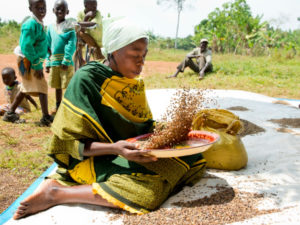 Fair Trade
Fair Trade
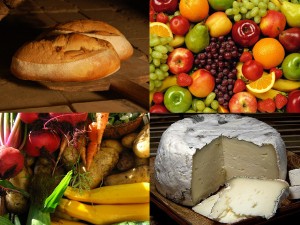 Low-impact food & drink
Low-impact food & drink
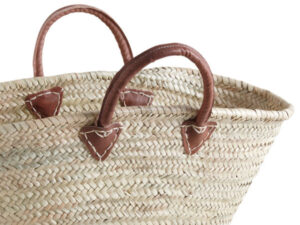 Low-impact shopping
Low-impact shopping
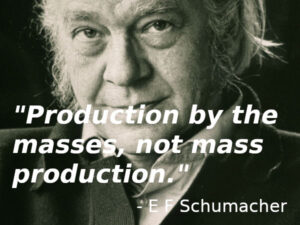 Small is beautiful
Small is beautiful


